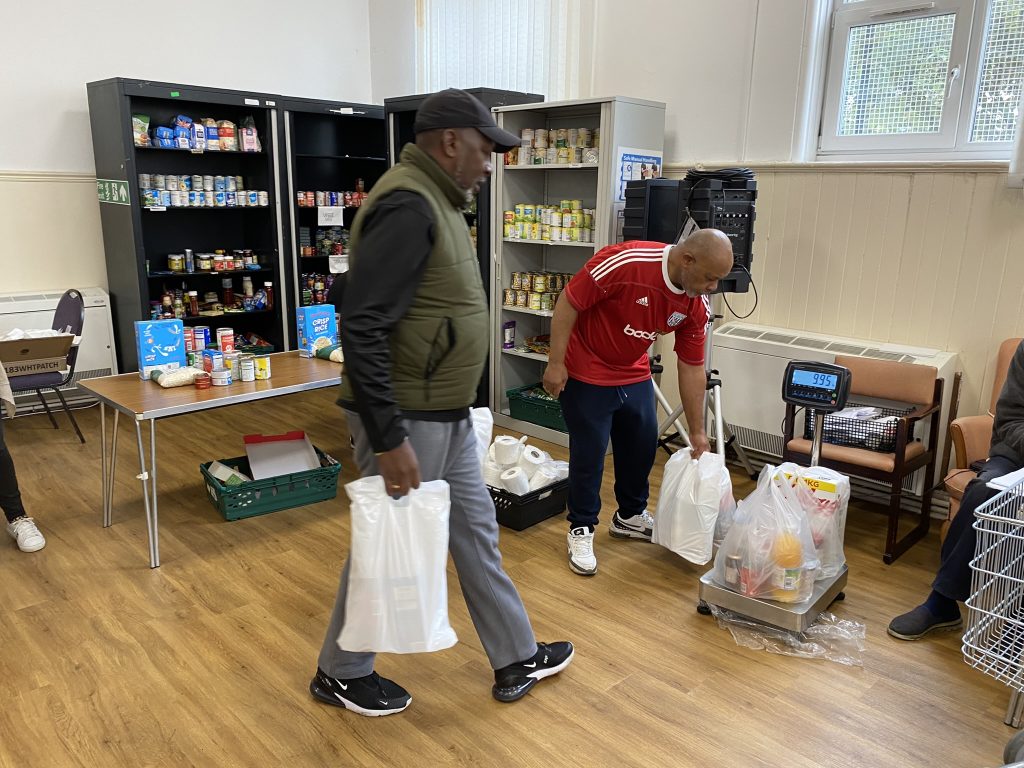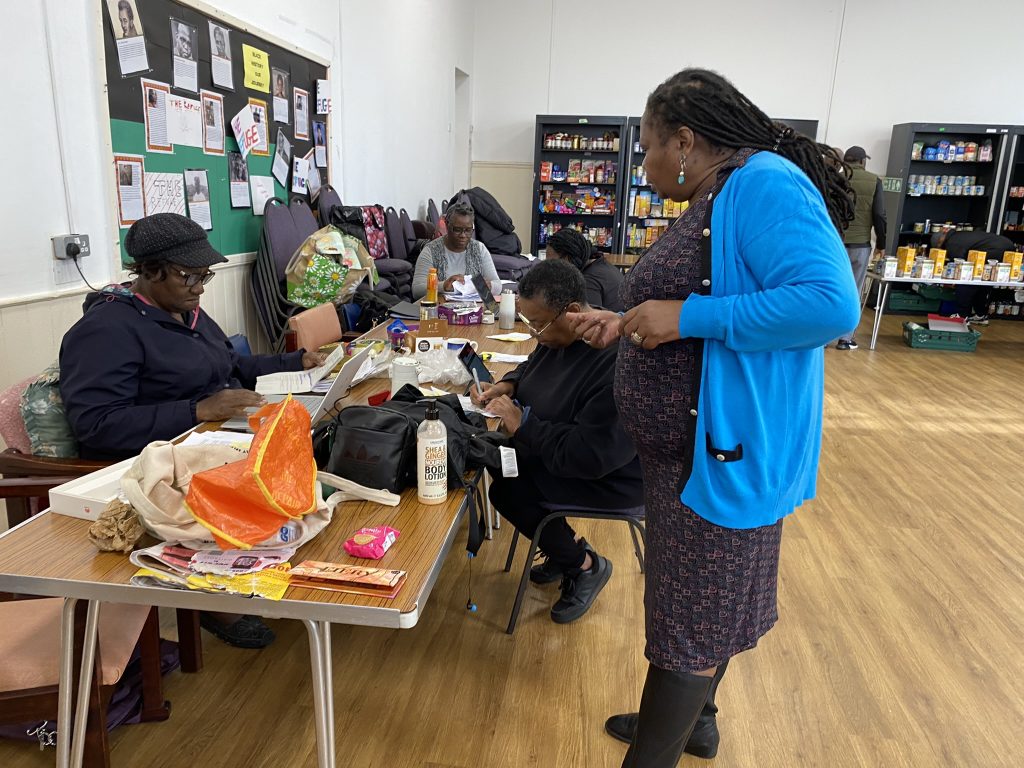SF-H: Hello David, could you please introduce yourself to our readers?
DW: So I’m David Whyte, and I am the current District Superintendent of the Wesleyan Holiness Church. I’ve been doing that now for a year and a half since the 2022 conference. Before that, I was the national youth director here as well. I’ve also been involved in local youth ministry and church ministry for a number of years here. Prior to that, I was working in education as a secondary school teacher. I did that for ten years. I’ve been married for 13 years my wife and I have five children between us.
SF-H: What’s a District Superintendent?
DW: It sounds a mouthful and quite, quite formal. It’s the most senior leadership position here in the UK. So it’s equivalent to a Bishop if you will, but that’s the terminology that we use within our tradition.
SF-H: What was your faith journey, how did you come to Christ?
DW: My family were nominal Christians. We believed but we didn’t really go to church that much. I’m one of six children. My sister started to go to church. And she got saved first. Then my mum was looking for a church. They came across the Wesleyan Church and they thought let’s go in here. My journey started with my mum asking me to bring her to church and drop her. And then she started to invite me in. I just thought, OK, I will do that. It’s the right thing to do as a son.
And then I started to actually listen. First, the worship got me. Then the preachers. Things were happening behind the scenes in my life and slowly but surely God was speaking to me through dreams and through people. So my journey really started in seeing how my sister changed, how my mum changed.
So I started to be a bit bold and say “God if you’re real, make it clear to me.” And he did, in his own way. There were a few key moments where people prayed for me when I was at my lowest and God really made himself known to me in ways that I couldn’t deny. He was clearly calling me. That was in my early 20s.
SF-H: What’s distinctive about the Wesleyan Holiness Church?
DW: Our members are not just from, let’s say Jamaica or Barbados. Our members come from Antigua, Saint Kitts and Nevis, Montserrat, Guyana, you know the whole range of the Caribbean islands.
What makes us distinct is that we have promoted women within our churches. We have women in senior leadership positions. And the most senior position. My predecessor was Rev. Ruth Lowe. She was one of two District Superintendents, the other was Rev Joyce Gray, who have been women.

SF-H: You’ve just celebrated the church’s 65th anniversary. What does that mean for you?
DW: When I was taking on this role I did a lot of praying and a lot of researching. What is the Wesleyan Church? Where have we come from?
We and many other black majority churches have a rich history. Those early pioneers came here and planted churches in kitchens, basements and attics. We’ve gone through challenging times of resistance, racism, prejudice, and discrimination. But we’ve shown resilience, perseverance and faith. Our church organised itself as a hub and a place for people to come together, not just to worship God but also to receive social help and support in various different ways.
And so at the very heart, we are a church that was born out of migration. We often hear people were looking for a better way of life. But no, there were some people who saw God calling them to plant churches. A reverse mission. I didn’t know this until I spoke with some of these people. I asked one man “So why did you come here?” “’Cause God called me to start a church here,” he said. “So you never had a job lined up or anything?” I said. And he replied “No, I knew I would get a job. But I came here for the church.”
I’ve also been thinking what will the Wesleyan Holiness Church be known for? What type of church is God calling us to be in the 21st century?
SF-H: So, what will your church look like in the next 65 years?
DW: The theme for our anniversary is a turning point which is taken from Isaiah 30v 21. And the scripture is: Whether you turn to the right or to the left your ears will hear a voice behind you saying “This is the way; walk in it.”
And so I feel like we’ve been on a journey. The landscape in the UK looks very different to what it did 65 years ago. But God calls us to continue to be ambassadors and lights in our communities. But those communities have changed; the social landscape has changed; the demographics have changed.
One of the main challenges is some of the language we use when we talk about faith when we talk about God. When certain language is used, it can be quite exclusive because people won’t recognise what particular words or phrases mean unless they’re already part of that. They may not have been brought up in church, they may not have learned the Lord’s Prayer in primary school, and they might not know how you ‘ought’ to behave in church.
The language of holiness is a good example. When we talk about holiness it’s often been about the things we don’t do. But holiness is about the joy and the unique calling God has given us as agents of light and how we go about sharing that. So rather than just being known for the fact that we don’t do x, y or z; we’re actually known for the love, the peace, and the joy of God in the midst of all types of crazy things that we may go through.


SF-H: I really liked what you said about social holiness, an example of that is the Handsworth Food Bank we see at your church today
DW: Yes, a number of years ago, one or two of the members asked ‘how do we engage with our community?’ How do we really be light and salt? Not just praying for people, which is our bread and butter, we also need to help them practically. How can we be who God was happy to be in the midst of people going through hard times?
It was before foodbanks were ‘popular’, I know that’s not the right word. We set one up and partnered with other churches.
SF-H: What’s your vision of ecumenism? How does it play out within the Wesleyan Holiness Church?
DW: Stronger and better together, than apart. That for me is the heart of God. Even with our differences what’s the big picture? And it’s a simple one. Go out and make disciples. It’s to go out to the ends of the earth. And not one church or one denomination is able to do that alone. We need to collaborate because this is bigger than any one tradition. It’s about the Kingdom of God
So, how do we how do we do that together? How do we learn from each other? How do we appreciate one another? How do we love one another? Because in such a fractured and divided world? We’re the ones that have to be the example. How can we, rather than focus on the differences, focus on where we align? Focus on who we worship, and who we follow.
For me, I want to learn from other brothers and sisters from different traditions. I think when we journey together we become stronger in our faith. I see us as all one big family. You know you’ve got one brother that’s crazy here over there you got the sister that’s over there you got another brother that’s over there. And as you know, sometimes families can be very dysfunctional. Don’t always see eye to eye. But we all share the same Father in heaven.
SF-H: Is there any figure outside of your own tradition that inspires you?
DW: Dr Cornel West, the African American philosopher. I may not agree with everything that he says. But I just love his courage. And his faith. And his insistence on justice. How we who are in positions of authority should help others. And we must speak out against those who always prey on the weak. I love that about him.
SF-H: At CTE there’s a great emphasis at the moment on encouraging young adult leaders in churches. You’re the youngest-ever Superintendent in Britain…
DW: Yes I am, but I think sometimes when we say the word ageing and age in church, there’s a negative connotation with that. One of the things I’ve come to learn is an ageing church shows a church that is faithful, committed and dedicated. But… who then comes in and takes the baton over? That’s where my focus is. Raising up those young people who can come and build on the legacy of those who were just simply incredible.
The challenge is, whatever young people feel passionate about or their gifting is, how the church is able to adapt in order to enable them to use that. And not just within a ministry setting. We’re having to start investing, providing international opportunities for them to see the wider Wesleyan Church abroad. Both in Europe and in the States. We’ve developed an in-house programme, but those who want to go further, they can then go and pursue ministerial studies at a higher level.
I think the way our young people see church is different for the older generation. They might hear a Baptist preacher on YouTube or listen to someone from a reformed church. So it’s no longer like you’re only confined to those from our tradition. And so how do we help them along in that journey rooted in our tradition, but also appreciating the different traditions? They really don’t see denominations in the same way as the older generation. Before it would have been frowned upon to go to a different church.
SF-H: So what does it mean to be a Wesleyan in 2024?
DW: That’s a good question! I keep asking myself who am I? What am I? And I think what it means is not about being known for the things we don’t do. It’s about being known for who we are. The blessing of that unique, wonderful, mysterious call of who we are. I’m still on a journey of how to become illuminating for other people and how to point them to Christ.